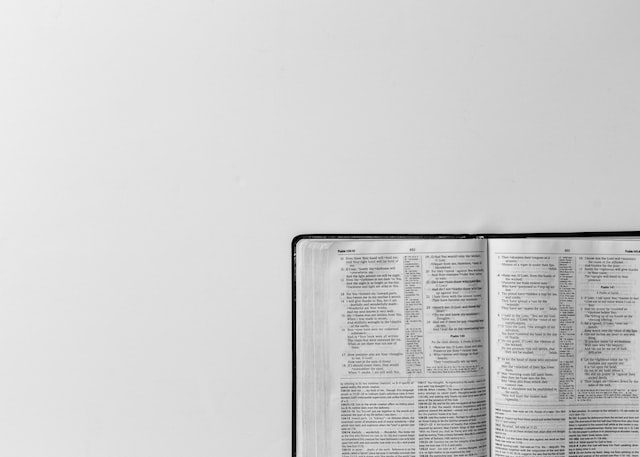I have divided my career between the academy and the church. And more than one occasion, I have had friends or acquaintances claim that I can’t possibly know anything about how ugly the work-world can be.
In response, I’ve often pointed out that – in fact – the politics of both the church and the academy can be so ugly because the stakes are so small.
That mean-spirited and vicious way of navigating the world can always manifest itself and – on at least three occasions over the years – it has presented itself as a moral or spiritual choice in which I have found myself asking, “Do you really believe what you profess, because this choice is going to cost you?” That’s life in snake pit.
I mention this, not because I live in a constant state of disaffection with either institution or that I think that either institution is by definition, a snake pit. The best of values and the best of institutions that advocate for those values can be betrayed by the people who live in them. But snake pit behavior can emerge in any place and at anytime.
I also mention this dynamic, because when clergy talk about trusting in God, it is clear that some people assume that we can’t possibly know anything about the “real world” and that the appeal to trust God amounts to some sort of vague, sentimental, unrealistic affection for something or someone that may or may not be there. The truth is, trusting in God does not come easily for anyone. Even for clergy. And like all of us, pastors have moments in their lives it was hard to know if God is there; and trusting can be a challenge when we feel abandoned.
What is more, if you live long enough, you will be faced with the choice between holding onto your principles or turning a blind eye to what is really going on. If you aren’t old enough for that to have happened yet, it’s worth making a note that one day, it will. Sooner or later, you will find yourself working for or working alongside people who don’t share your moral and spiritual commitments. And when that happens you will be forced to decide whether you are committed to anything beyond your own personal comfort.
It’s at this point that life will test the proposition of one of the church’s frequent prayers — this one a part of our church’s annual liturgy:
Grant us, O Lord, to trust in you with all our hearts; for, as you always resist the proud who confide in their own strength, so you never forsake those who make their boast of your mercy; through Jesus Christ our Lord, who lives and reigns with you and the Holy Spirit, one God, now and forever. Amen.
The central burden of the prayer is right up front: “Grant us – in other words, teach us, help us – to trust you, God.” To be sure, understanding who God is and thinking about our faith in ways that correspond with Scripture and the traditions of the church are important.
But that’s only half of the story. We also need to trust in God – to make decisions, to shape our lives in ways that are dependent upon the sacrifice and the example of Christ. That’s what “trust” actually means in this context. Trust isn’t some sort of wishful thinking. Trusting in God entails the capacity, the willingness to live our lives as people who actually believe in God, in Christ, and in the goodness of a life shaped by faith.
We don’t live that way to avoid hell. We do that to avoid serving hell. We do it to enter into the life of love, mercy, courage, sacrifice, and truth that can only be found in Jesus. And this prayer asks that we believe in that life deeply enough that day by day, in good times and in bad, that God would help us to trust that this is the way to live – come what may.
This isn’t always an easy prayer to pray. If you pray it and it gets you into trouble, people who say that they love you will tell you that you are being way too serious about your faith, that you’ve gone out of your way to attract trouble. People who you thought were your friends and co-workers will run away, quite certain that they will “catch” whatever you have — or that guilt-by-association will lead them to be tarred with the same brush.
People who pray this prayer know that outward appearances don’t matter. Trusting God involves leaning on God’s view of the world, God’s priorities for the world, God’s longing for us and for our neighbors. And while that might sometimes overlap with what the world values, more often than not, it won’t. So, praying this prayer sometimes leads us straight into potential conflict with the world around us.
To put it another way: The Christian faith is not a “Get Out of Jail Free” card. Over the centuries, more often than not, it has been a “Get into Jail to be Free Card.”
The prayer goes onto ask that we be taught not to rely on our own strength for this very reason.
Frankly, the challenges associated with trusting God are great enough that there is always the temptation to avoid walking in the steps of Jesus. We can be tempted to shade the truth, to look the other way, to compromise, to go along and get along.
It doesn’t take a major crisis to get us to that point. It is actually pretty easy to get there day by day, making a hundred and one small choices that are more deeply rooted in our own instinct for self-preservation than they are in our relationship with Christ.
So, it sounds rather grand, to talk about “the proud who confide in their own strength.” But doing that isn’t nearly all that grand most of the time. More often than not, in fact, it’s really rather pathetic.
One friend of mine talks rather candidly about the way in which he burned through three marriages, abused the trust of his friends and colleagues, and lied to almost everyone he knew, all the while self-medicating with drugs and alcohol. All of it came unraveled in a really embarrassing fashion before he finally surrendered the effort and looked to God for help. But he would tell you, if he had the chance, that his life looked like anything but a demonstration of strength.
Interestingly, though, the lectionary or biblical readings that accompany this prayer are pretty sure, however, that trusting in our own strength is not the only way we avoid God and destroy our lives. Sometimes what we do is look to the strength of others.
That is why we read Psalm 146:
Put not your trust in rulers, nor in any child of earth,
for there is no help in them.When they breathe their last, they return to earth,
and in that day their thoughts perish.
Sound familiar? It should. If you want to know why I don’t preach our politics on Sundays, here is as good a reason as any.
- Preach politics and you privilege one kind of politics.
- Privilege one kind of politics and you privilege a handful of politicians.
- Privilege one kind of politician and they begin to look like little saviors.
If our country has a spiritual disease right now, it is undoubtedly the fact that we regularly ignore the truth of this Psalm and we put our trust in rulers.
We have created a cadre of politicians that want to be little saviors. Only they know the way, the truth, the light. To prove their saviorhood, they lecture, bully and belittle the people who don’t vote for them or approve of their policies, and make little or no effort to draw the country together. Everything has become, “You are either with me or against me.”
This happens because as a culture we have made politicians into our saviors and politics into our true religion. And by doing this, we betray Christ. We would do well to write the words of the psalmist on our hearts, “When they breathe their last, they return to earth, and in that day their thoughts perish.”
So, how do we get back to the inescapable task of balancing the need to trust God with the responsibility to use our gifts in cooperation with God’s work to renew the world? There is not – as you might have expected – an easy answer at either extreme. We cannot trust in God and prop up our feet. And we cannot redouble our efforts and hope to make it on our own strength.
The answer, I believe was one captured by Ignatius of Loyola centuries ago:
I consider it an error to trust and hope in any means or efforts in themselves alone; nor do I consider it a safe path to trust the whole matter to God our Lord without desiring to help myself by what he has given me; so that it seems to me in our Lord that I ought to make use of both parts, desiring in all things his greater praise and glory, and nothing else.[1]
If we take his advice, we will discover three important truths:
- Everything we have belongs to God.
- Every good thing that we do with God’s help will endure.
- And every time we stumble, fail — or find ourselves in a snake pit — God will be with us.
So, to paraphrase the prayer we have been thinking about:
God, teach us to enter into the life of love, mercy, courage, sacrifice, and truth that can only be found in Jesus. When we are tempted to rely on our own path or trust in the path chosen by others, remind us that those choices will fail us. For you and you alone are trustworthy. We pray, in the name of your Son, our Savior, Jesus Christ, who with you and the Holy Spirit, reign one God, now and forever. Amen
Photo by Meg Jerrard on Unsplash
[1] From a letter Ignatius wrote to Francis Borgia in 1555.













